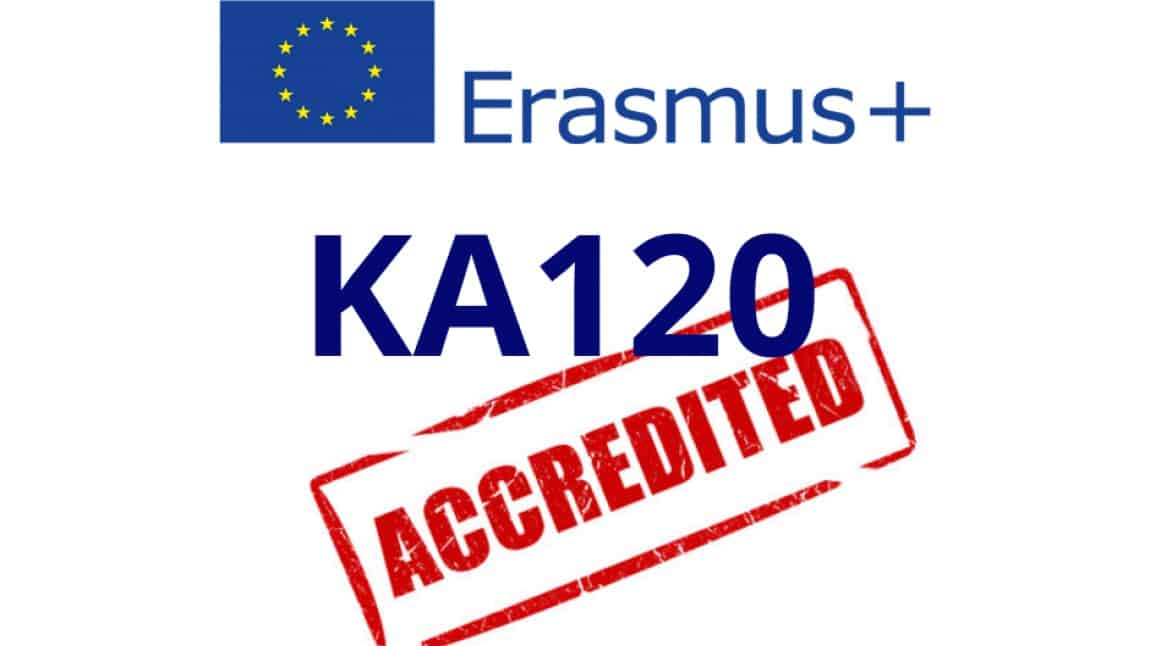ERASMUS+ ACCREDITATION FOR SCHOOL EDUCATION
Erasmus accreditation is a tool for education and training organisations in adult education, VET, and school education that want to open up to cross-border exchange and cooperation.
Erasmus+ School Accreditation
Start: 2021 - 2027
Accreditation Code: 2020-1-MK01-KA120-SCH-094427 
EU Grant: 2021 - 47.520 EUR
2022 -
Programme: Erasmus+
Key Action: Accredited projects for mobility of learners and staff in school education
-
Erasmus accreditation in the fields of vocational education and training, school education and adult education
Erasmus accreditation is a tool for organisations in vocational education and training (VET), school education and adult education that want to open up to cross-border exchange and cooperation. Award of the Erasmus accreditation confirms that the applicant has set up a plan to implement high quality mobility activities as part of a wider effort to develop their organisation. This plan is called an Erasmus Plan and it is a key part of the application for Erasmus accreditation.
Applicants can apply for an individual Erasmus accreditation for their organisation, or for an Erasmus accreditation for mobility consortium coordinators, as explained below. Previous experience in the Programme is not required to apply.
Organisations that already have an Erasmus accreditation may be awarded an excellence label to recognise their past work and dedication to quality.
-
How to access mobility opportunities with an Erasmus accreditation?
Successful applicants for Erasmus accreditation will gain simplified access to Key Action 1 funding opportunities in their respective field. The yearly call for funding for accredited projects is presented in the chapter dedicated to each of the fields covered by the Erasmus accreditations.
-
In the field of school education
Increasing the quality of teaching and learning in school education by:
supporting professional development of teachers, school leaders and other school staff
promoting the use of new technologies and innovative teaching methods
improving language learning and language diversity in schools
supporting the sharing and transfer of best practices in teaching and school development


- Objectives:
Objective 1 : Contributing to the creation of the European Education Area
Objective 2 : Increasing the quality of teaching and learning in school education and ICT
Objective 3 : Strengthening the European dimension of teaching and learning by: promoting values of inclusion and diversity, tolerance, and democratic participation

YEAR 2021
Inclusive education means that all students attend and are welcomed by their neighborhood schools in age-appropriate, regular classes and are supported to learn, contribute and participate in all aspects  of the life of the school.
of the life of the school.
It is also about how we develop and design our schools, classrooms, programs and activities so that all students learn and participate together.
Inclusive education is when all students, regardless of any challenges they may have, are placed in age-appropriate general education classes that are in their own neighborhood schools to receive high-quality instruction, interventions, and supports that enable them to meet success in the core curriculum (Bui, Quirk, Almazan, & Valenti, 2010; Alquraini & Gut, 2012).
Schools and Classrooms operate on the premise that students with disabilities are as fundamentally competent as students without disabilities. Therefore, all students can be full participants in their classrooms and in the local school community.
© Copyright 2020 by Breshia In Debar - North Macedonia
Design & CMS: Ozki
ПОЛИТИКА НА ПРИВАТНОСТ
КОРИСТИМЕ КОЛАЧИЊА *COOKIES НА ОВАА ВЕБ-СТРАНА ЗА ПОДОБРУВАЊЕ НА ВАШЕТО КОРИСНИЧКО ИСКУСТВО.

 Breshia eTwinning
Breshia eTwinning